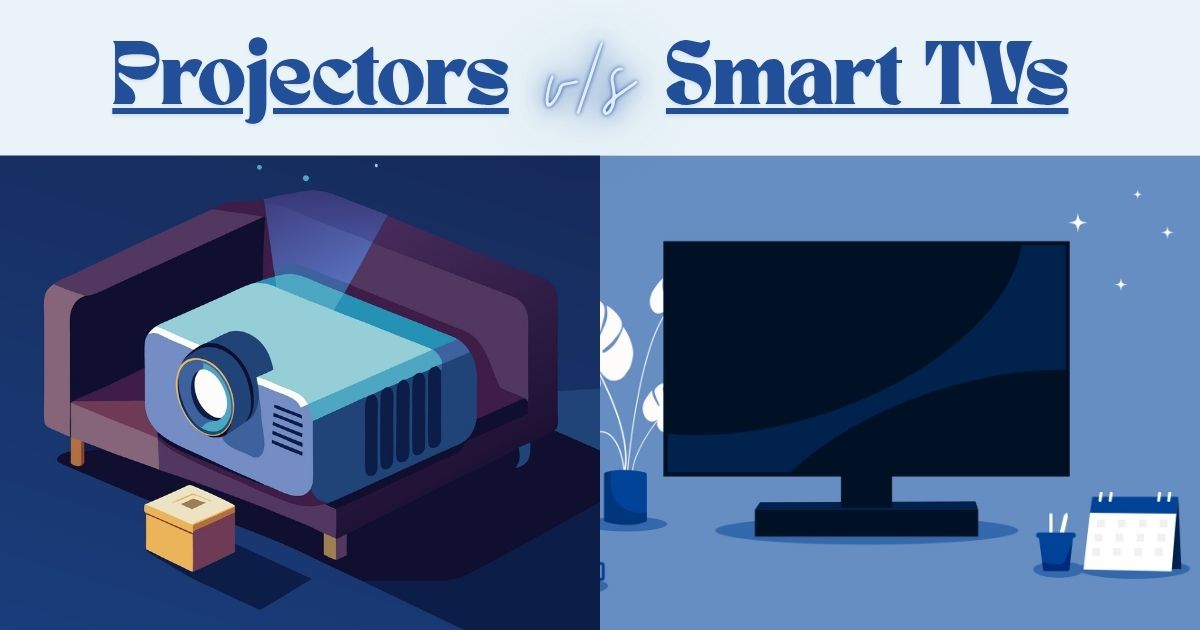Air conditioners are no longer just a luxury; they are essential for maintaining comfort in your home, especially during hot and humid seasons. However, selecting the right AC is not an easy task. It involves considering various factors like room size, energy efficiency, and specific features to ensure you pick the right cooling solution. But fret now! In this AC buying guide, I will help you navigate through the options and make an informed decision.
Types of Air Conditioners

Finding the perfect air conditioner for your home is essential for keeping cool and saving on energy bills. Each type of air conditioner has its unique advantages and disadvantages. Choosing the right one depends on your specific cooling needs, budget, and room size. Here are the main types of air conditioners available in the market:
Split AC
Split air conditioners consist of two units: an indoor unit and an outdoor unit. They are known for their efficient cooling and low noise levels. However, they are more expensive and require professional installation.
Perfect For: Multiple rooms or large areas
Window AC
Window air conditioners are single-unit appliances installed in a window. They are more affordable and easier to install, but they tend to be noisier and obstruct the window view.
Perfect For: Small to medium-sized rooms
Read more: Split ACs Vs Window ACs! Are you confused about which AC should you buy?
Portable AC
Portable air conditioners are mobile units that can be moved from room to room. They are easy to install and offer flexibility but are typically noisier and less efficient than split or window ACs.
Perfect For: Flexibility and small spaces
Read More: Here’s a complete guide to learning more about different types of air conditioners.
Room Size and AC Capacity
To ensure optimal cooling, it’s crucial to match the AC capacity with your room size. Air conditioners come in different capacities, which are measured in British Thermal Units (BTUs) or tons. An AC that is too small for a room will not cool effectively, while an oversized unit will cycle on and off too frequently, wasting energy.
Here’s a quick reference of room size and its compatible AC capacity:
| Room Size | Capacity (tons) | Capacity (BTUs) |
| Up to 120 sq. ft. | 0.75 | 9,000 |
| 121-150 sq. ft. | 1.0 | 12,000 |
| 151-250 sq. ft. | 1.5 | 18,000 |
| 251-400 sq. ft. | 2.0 | 24,000 |
Tips for Choosing the Right Capacity:
- Measure your room dimensions accurately, including ceiling height.
- Consider additional factors like sunlight and room usage. Rooms with large windows or direct sunlight may need a higher-capacity appliance.
- Consult with a professional if unsure about the exact requirements.
- Rooms frequently used by multiple people generate more heat and may need a higher capacity.
Energy Efficiency
This is one of the most critical factors when choosing an air conditioner. An energy-efficient AC not only helps reduce your electricity bills but also minimises your carbon footprint. Here’s what you need to know about energy-efficient features in air conditioners:
SEER and EER Ratings
Seasonal Energy Efficiency Ratio (SEER): This rating measures the efficiency of cooling over an entire cooling season. The higher the SEER rating, the more efficient the air conditioner. Units with SEER ratings of 16 and above are considered highly efficient.
Energy Efficiency Ratio (EER): It measures the efficiency of the AC at peak cooling times. Like SEER, a higher EER indicates better efficiency. Look for units with an EER rating of at least 12.
How to choose AC with the different ratings?

1-Star AC
- When to Choose?: If the initial cost is a primary concern and the AC usage is minimal (e.g., occasional use in a guest room).
2-Star AC
- When to Choose?: Slightly more efficient and suitable for areas with lower electricity rates.
3-Star AC
- When to Choose?: This is a balanced option for those who want decent energy savings without a high upfront cost. It is suitable for moderate daily usage.
4-Star AC
- When to Choose?: For higher energy savings with a reasonable price increase. Suitable for those who use the AC frequently and want to save on electricity bills.
5-Star AC
- When to Choose?: Best for maximum energy efficiency and long-term savings. Suitable for areas with high electricity rates or for heavy daily use.
Inverter Vs Non-Inverter AC: Which One Is Better?

Choosing between inverter and non-inverter ACs is a significant decision that impacts energy efficiency, cost, and performance. Here’s a breakdown of the key differences:
Inverter AC
Such ACs use advanced technology to regulate the compressor’s speed. Instead of turning on and off repeatedly, the compressor adjusts its speed to maintain the desired temperature.
Non-Inverter AC
Non-inverter air conditioners, also known as conventional ACs, operate by switching the compressor on and off to maintain the set temperature.
Which one to choose?
Inverter ACs are a better choice for long-term energy savings and consistent comfort despite the higher initial cost. However, non-inverter ACs can be suitable for those looking for a budget-friendly option with simpler maintenance needs. Evaluate your priorities and budget to decide which type best fits your requirements.
Also Read: Inverter vs Non-Inverter ACs: Pros, Cons, and Key Differences
How To Decide Which AC To Buy: Other Features to Look Out For!
When selecting an air conditioner, beyond the basic types and capacities, several additional features can enhance comfort, convenience, and efficiency. If you are confused about what to see before buying an AC, here are some more features that play an important role in the decision:
Noise Levels
Consider the AC’s noise level, especially if it will be installed in a bedroom or study. Quieter units provide a more comfortable environment and enhance sleep quality by reducing disturbances. Inverter ACs typically operate more quietly than non-inverter models due to their variable-speed compressors.
Warranty and After-Sales Service
Check the warranty terms and after-sales service quality. A good warranty provides peace of mind, covering potential repairs and maintenance costs. Pick a brand that provides reliable after-sales service as it ensures that any issues are promptly addressed.
Design and Aesthetics
Consider the design and aesthetics of the AC to ensure it complements your home decor. Modern ACs come in various styles and finishes, allowing you to choose a unit that blends seamlessly with your interior design. If aesthetics plays a crucial role, then you must go for a split air conditioner. Window ACs are perfect for spaces that have a window space.
Budget
Understanding the various costs involved when purchasing an air conditioner is essential for making a well-informed decision. First, there is the Initial Or Upfront Cost, which is different for different types of ACs. Then comes the Operating Cost, which is influenced by its energy efficiency and usage patterns. Last, there is Maintenance Cost, which is the money you spend on its maintenance and service for long-term usage.
Installation
Proper installation and regular maintenance are key to ensuring your air conditioner operates efficiently and has a long lifespan. For split and central ACs, professional installation is highly recommended. You’ll need trained technicians for proper placement, secure mounting, and correct electrical connections.
On the other hand, Window and portable ACs can often be installed by homeowners. By following the manufacturer’s instructions carefully, such ACs can be installed with ease.
Smart Features
Modern air conditioners are equipped with a range of smart features that enhance convenience and efficiency. Here’s a closer look at some of these smart features:
- Auto Start– It ensures that the AC automatically restarts with the previous settings after a power outage.
- Dehumidification– ACs with this feature are ideal for humid climates as they remove excess moisture from the air and prevent mold growth while maintaining indoor air quality.
- Four-Way Swing– The four-way swing allows the AC to distribute cool air evenly in all directions, ensuring uniform cooling throughout the room.
- Sleep Timer– A timer adjusts the temperature automatically during the night, ensuring a comfortable sleeping environment while saving energy.
- Wi-Fi Connectivity– With Wi-Fi connectivity, you can control your AC remotely using a smartphone app. You can turn the AC on or off, adjust the temperature, and set schedules from anywhere.
- Turbo Mode– This mode lets the AC operate at maximum power for a short duration to rapidly cool the room.
Environmental Impact
Choosing an eco-friendly air conditioner and following sustainable practices can significantly reduce your environmental footprint. Look for air conditioners with high SEER and EER ratings and inverter technology, which adjusts the compressor speed to save energy. Also, when installing a new AC, ensure it uses environmentally friendly refrigerants with lower global warming potential.
How Do Air Conditioners Work?

Now that you have all the information to choose the right type of air conditioner, if you are wondering how air conditioners keep your home cool and comfortable, here’s a friendly breakdown of the process.
Heat Absorption: The magic starts inside your home. The refrigerant in the indoor unit’s evaporator coil absorbs heat from the indoor air and evaporates into a gas.
Compression: Next, the gaseous refrigerant moves to the compressor. This increases the pressure and temperature of the refrigerant gas.
Heat Release: The hot, high-pressure gas then travels to the condenser coil, which is located in the outdoor unit. The coil releases the heat outside and condenses back into a liquid.
Cooling Down: The now-liquid refrigerant goes through an expansion valve, which reduces its pressure and cools it down even more.
Cycle Repeats: The cool liquid refrigerant returns to the evaporator coil to absorb more heat, repeating the process.
Maintenance Tips for Your Air Conditioner
Now that you have an air conditioner and you know how it works, you must take good care of your appliance to ensure its efficiency, longevity, and optimal performance. Here are some essential maintenance tips that you must follow:
- Clean or Replace Filters: Clean the filters every month during peak usage to maintain airflow and efficiency. It is recommended that filters be replaced every 3-6 months.
- Check and Clean Coils: Clean the evaporator and condenser coils annually to remove dirt and debris that can reduce efficiency.
- Inspect and Clean Fins: Gently clean the aluminium fins on the evaporator and condenser coils with a fin comb to maintain airflow.
- Check Refrigerant Levels: Have a professional check the refrigerant levels regularly to ensure optimal cooling performance.
- Schedule Professional Maintenance: Arrange for a professional technician to perform a comprehensive check-up and tune-up at least once a year. This is important to ensure that the system is running efficiently.
Comparative Analysis of Popular AC Brands in India
When choosing an air conditioner, it’s beneficial to compare popular brands to understand their unique features, advantages, and drawbacks. Here’s a comparative analysis of some leading AC brands:
LG
- Pros: Innovative technology, energy efficiency, strong service network, 10-year compressor warranty.
- Cons: Higher initial cost.
- Best For: Tech-savvy users looking for advanced features and strong after-sales service.
Voltas
- Pros: Affordable, reliable, extensive service network, comprehensive warranties.
- Cons: Basic features compared to premium brands.
- Best For: Budget-conscious buyers seeking reliable cooling solutions.
Haier
- Pros: Competitive pricing, advanced features, eco-friendly refrigerants, up to 12-year compressor warranty.
- Cons: Installation costs may vary.
- Best For: Consumers looking for value for money with innovative features.
These are the top three air conditioner brands and their comparative analyses. We have also done market research and provided you with a detailed guide to learn about the 9 best AC brands in India.
Selecting the right AC brand depends on your priorities, whether it’s advanced features, energy efficiency, affordability, or after-sales service. Compare these brands based on your specific needs to make an informed decision.
Final Words
Choosing the right air conditioner involves considering various factors such as type, capacity, energy efficiency, smart features, and brand reliability. By understanding your specific needs and the features offered by different types of air conditioners and brands, you can make an informed decision that ensures optimal cooling and energy savings. Take your time to read this AC buying guide and invest in an appliance that best suits your home and budget, ensuring long-lasting satisfaction.
FAQs
How to choose an air conditioner for home?
To choose the right air conditioner for your home, match the AC capacity to your room size, select the appropriate type (split, window, or portable), opt for higher star-rated units for energy efficiency, and look for smart features.
Is a voltage stabiliser required for AC?
Many modern ACs come with built-in stabilisers. However, in areas with frequent voltage fluctuations, an additional external stabiliser is recommended to protect the unit.
What capacity of AC should I buy?
Choose the AC capacity based on your room size: up to 120 sq. ft. needs 0.75 tons, 121-150 sq. ft. needs 1 ton, 151-250 sq. ft. needs 1.5 tons, and 251-400 sq. ft. needs 2 tons. Consider additional factors like ceiling height and sunlight exposure for optimal cooling.
Which AC Should I Buy: 3-Star or 5-Star?
Choose a 3-star AC if you want a balance between cost and energy savings, suitable for moderate daily use. Opt for a 5-star AC for maximum energy efficiency and long-term savings, especially if you use the AC frequently or live in an area with high electricity rates.




